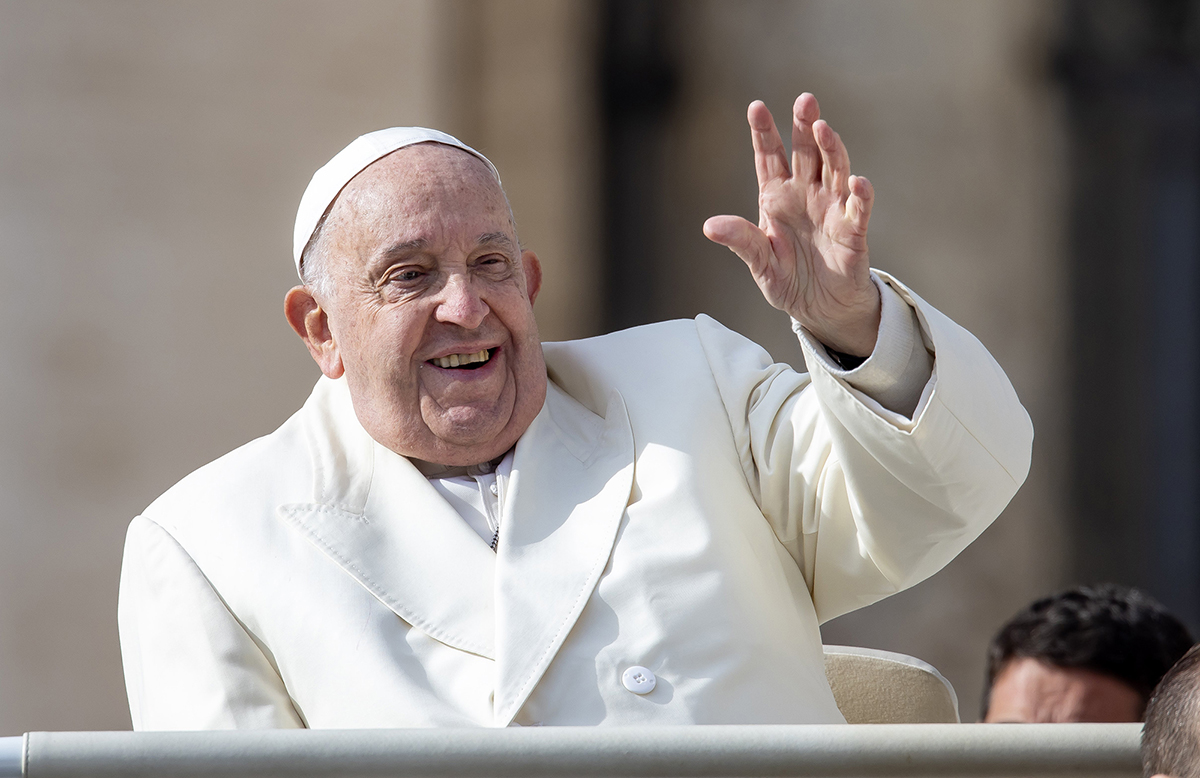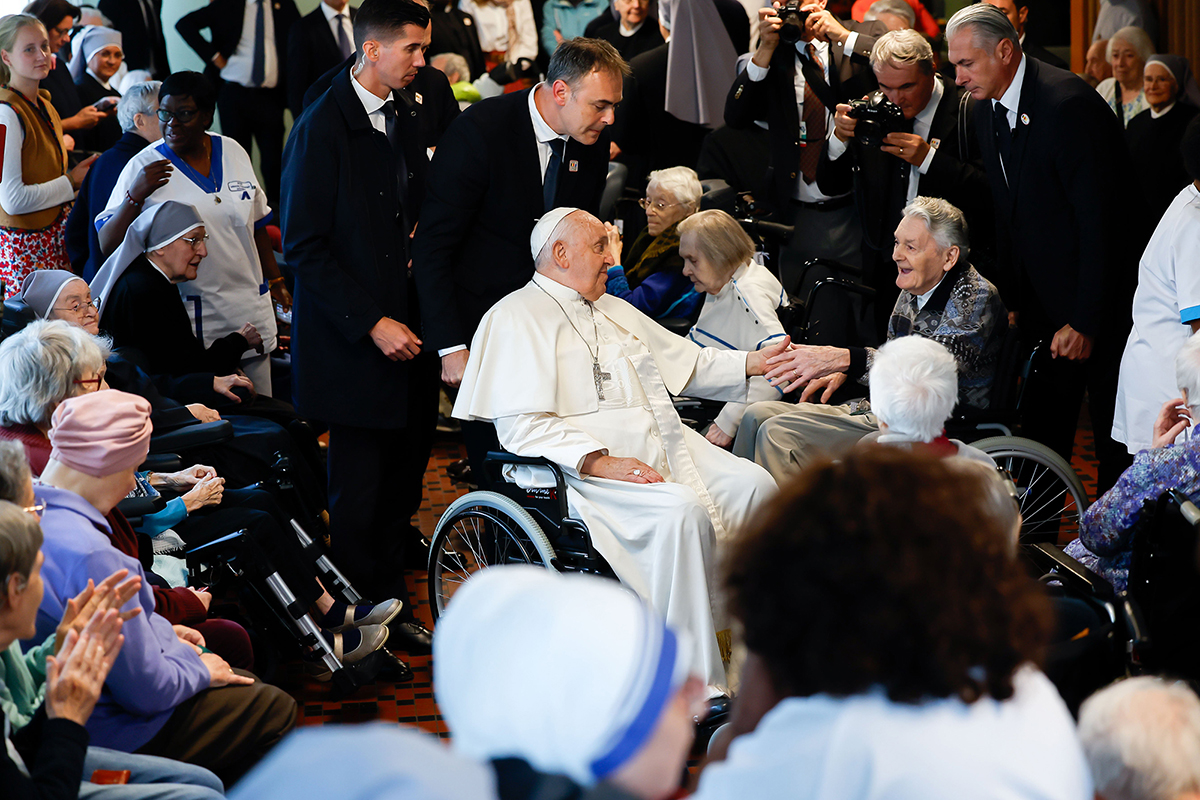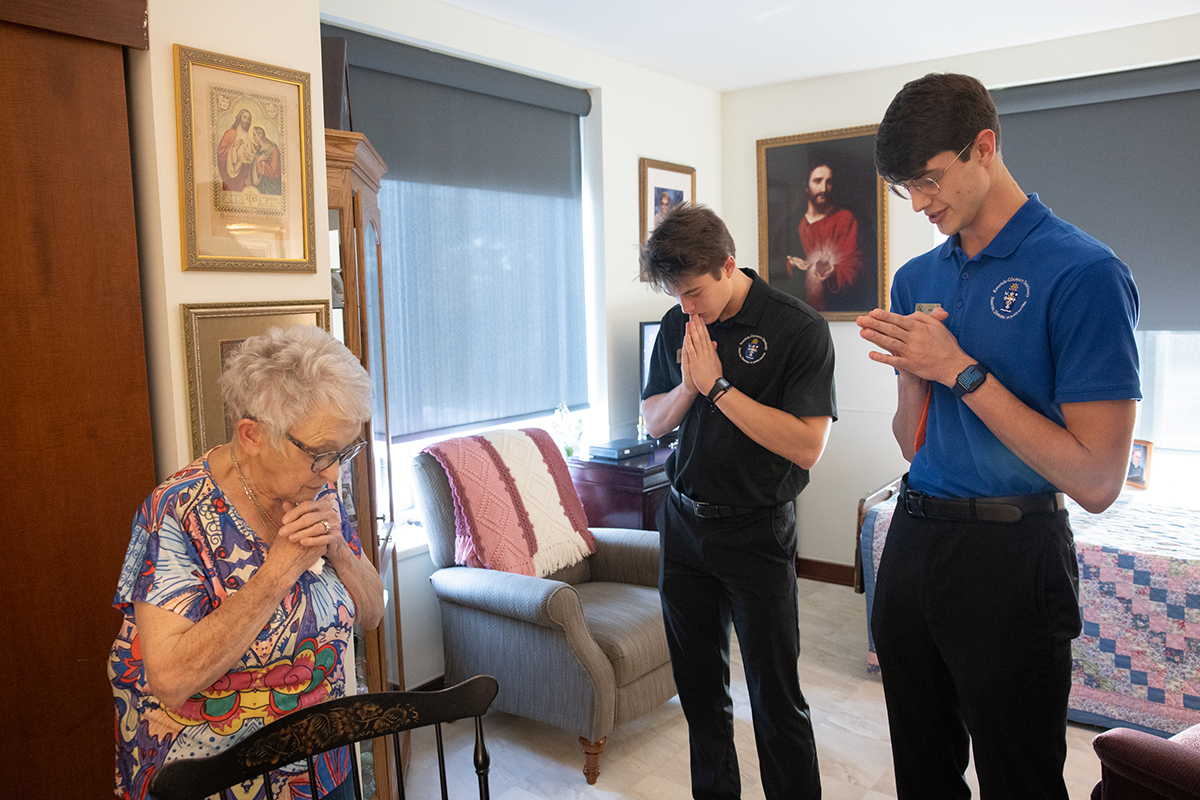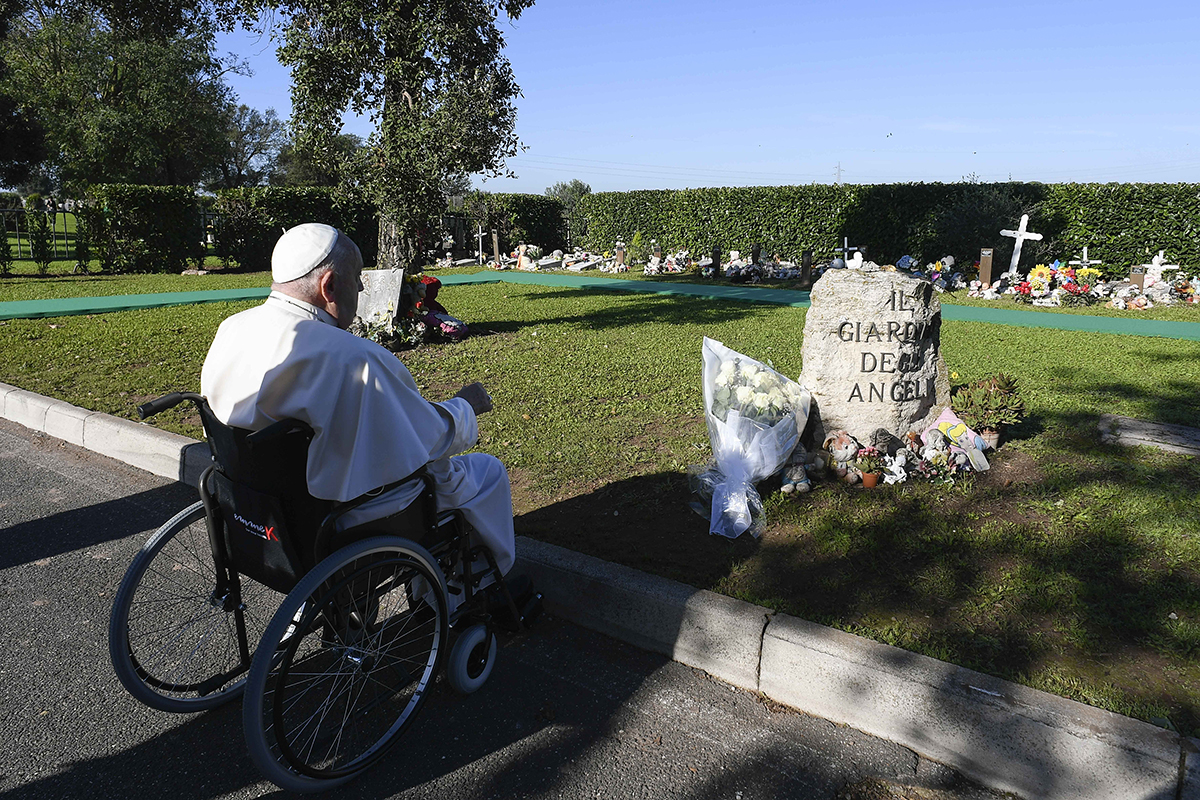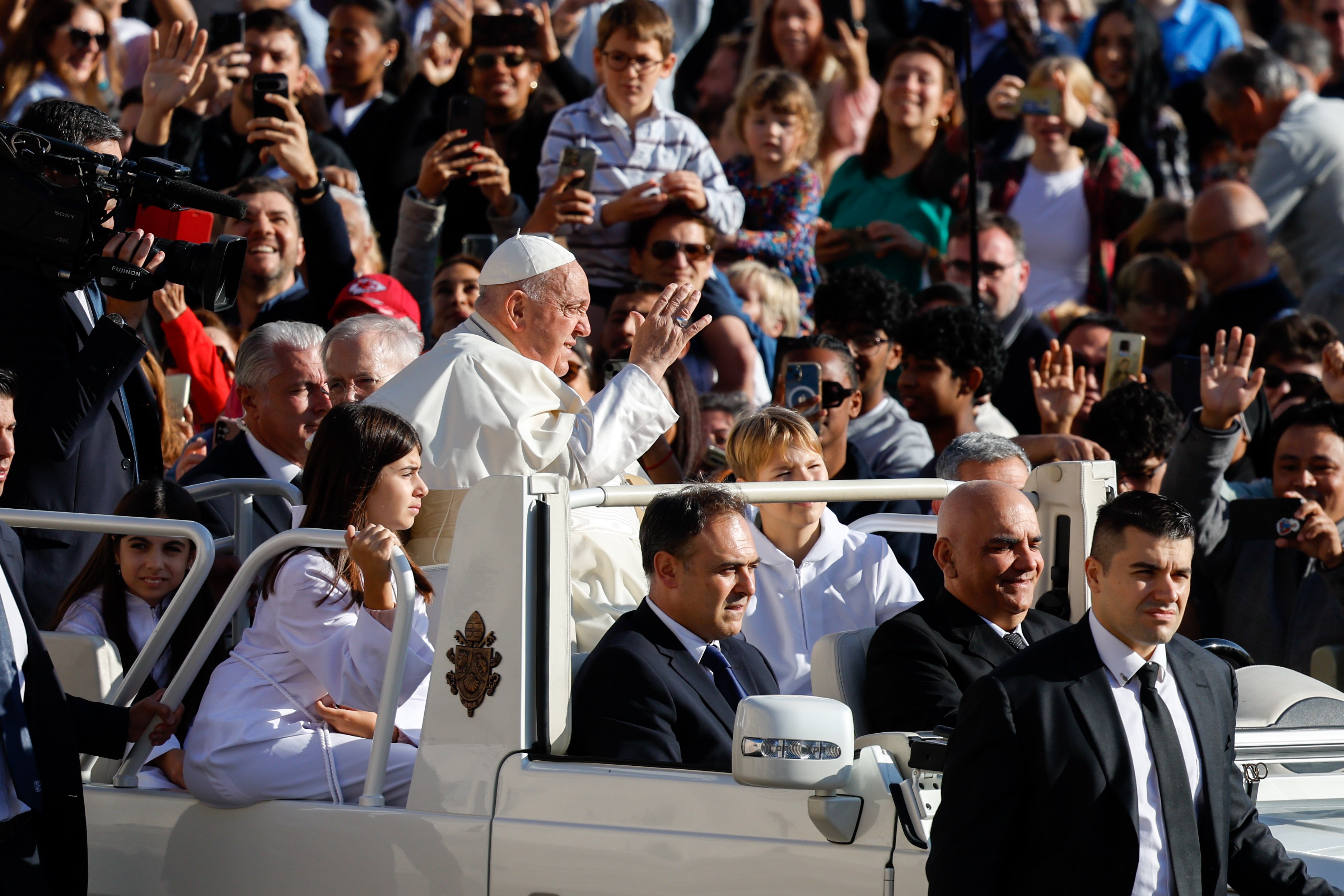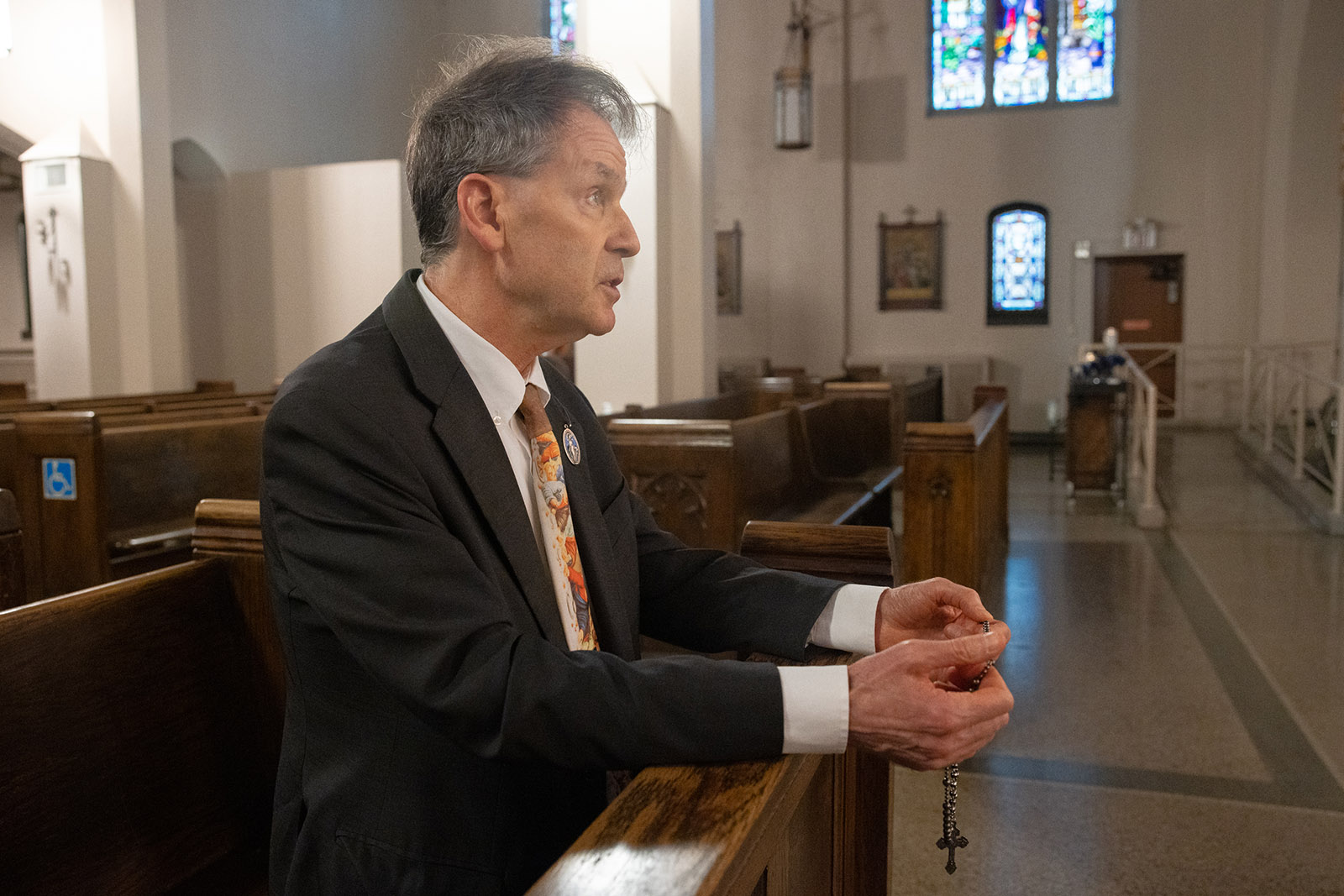PAPAL TRIP TO CANADA JULY 25-29 | Pope’s Canada trip will begin and end with asking forgiveness
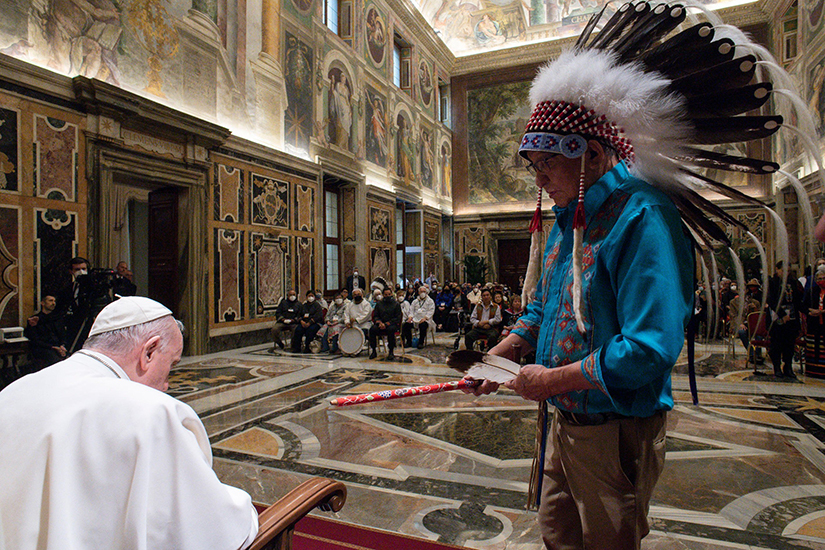
Pope Francis’ trip to Canada will emphasize meeting with and apologizing to Indigenous people
VATICAN CITY — Pope Francis said all the speeches he has prepared for his trip to Canada “begin and end” with asking forgiveness.
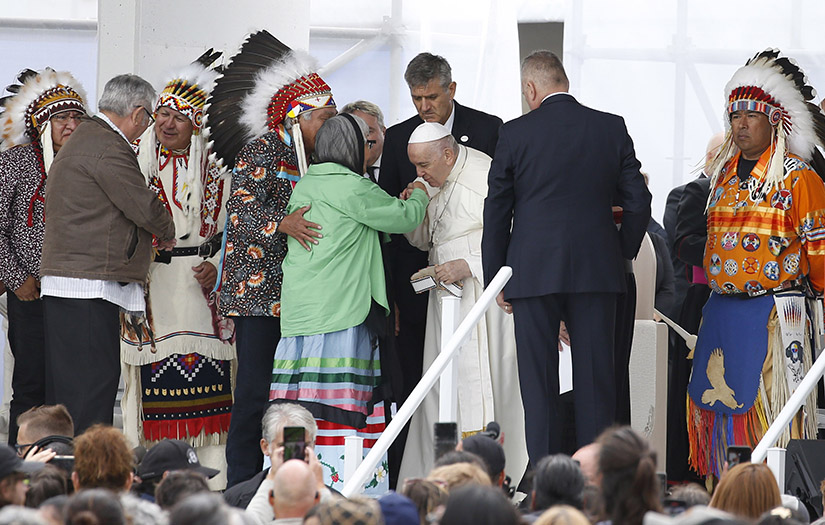
In an early July interview, he acknowledged the “cruel way” the Catholic Church collaborated with the Canadian government in “colonization” by uprooting Indigenous children from their families, cultures and spiritualities and forcing them to attend residential schools where many suffered emotional, physical and sexual abuse.
Cutting children and young adults off from their cultures “is diabolical, it is to kill life and richness,” the pope said in the interview that aired July 11 on Univision.
Pope Francis is scheduled to be in Canada July 24-29, flying to Edmonton, Quebec and Iqaluit. He also will visit the site of a former residential school near Edmonton, join Indigenous pilgrims at Lac Ste. Anne and celebrate Mass at the National Shrine of Sainte-Anne-de-Beaupré near Quebec.
Ted Quewezance, a former chief of the Keeseekoose First Nation and former executive director of the National Residential School Survivors Society, was at the Vatican in early April when Pope Francis apologized to delegates of Canada’s Métis, Inuit and First Nation communities.
Quewezance was one of the first survivors in Canada to speak publicly about having been sexually abused at a Church-run residential school. While he still gets emotional talking about it — “when you shed a few tears, more weight comes off your chest,” he said — after the Rome trip he decided it was time to forgive and move forward.
But he said still wants one thing from the pope: A recognition of “the true inherent right that that was given to us by the Creator through our language, through our traditions, our customs, our ceremonies. And that’s a sacred inherent right; it is given to us by the Creator.”
The pope, Quewezance said, consistently calls the Church to “walk with others in all manner of woundedness. This is particularly true when those wounds have been caused by the Church herself.”
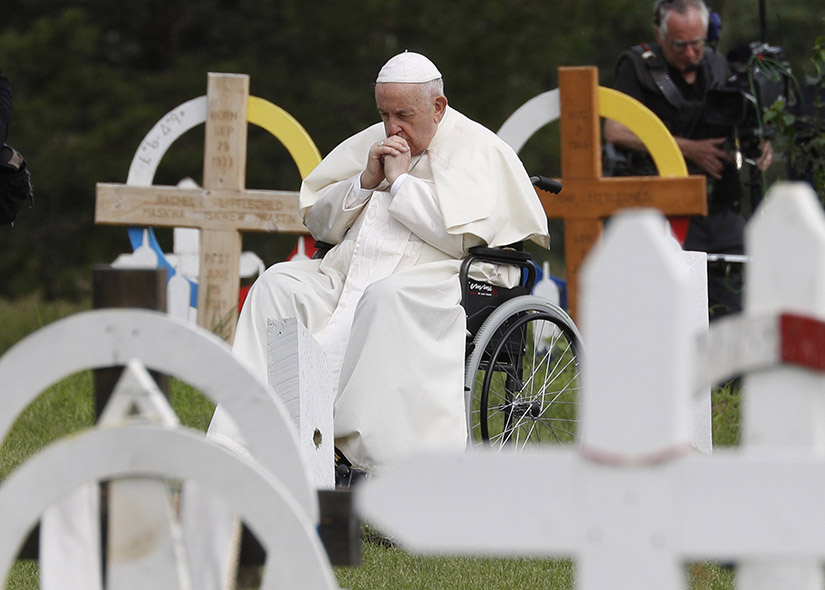
Cassidy Caron, Métis National Council president, said the pope’s apology in Rome was “the first step in our journey toward truth, reconciliation, justice and healing.” The next step is for the pope to repeat the apology “in Canada where the highest number of survivors, elders, families and communities would be able to attend,” she said.
Canadian Cardinal Michael Czerny, prefect of the Dicastery for Promoting Integral Human Development, will be part of the papal entourage for the trip.
Asked what more the pope can do after his apology at the Vatican, Cardinal Czerny said, “It’s not a matter of ‘doing more’ but of ‘going deeper.’ An apology can be achieved by a text, whereas reconciliation requires human encounter, a ceremony, a liturgy.”
“Humanly and spiritually speaking,” he said, “if you want to say sorry, taking the trouble to go in person and say it ‘among us’ is very significant; saying sorry is always worth repeating, you don’t just say it once and be done with it.”
‘I am sorry’: Canadian Indigenous react to papal apology
By Michael Swan | Catholic News Service
MASKWACIS, Alberta — The words “I am sorry” are powerful.
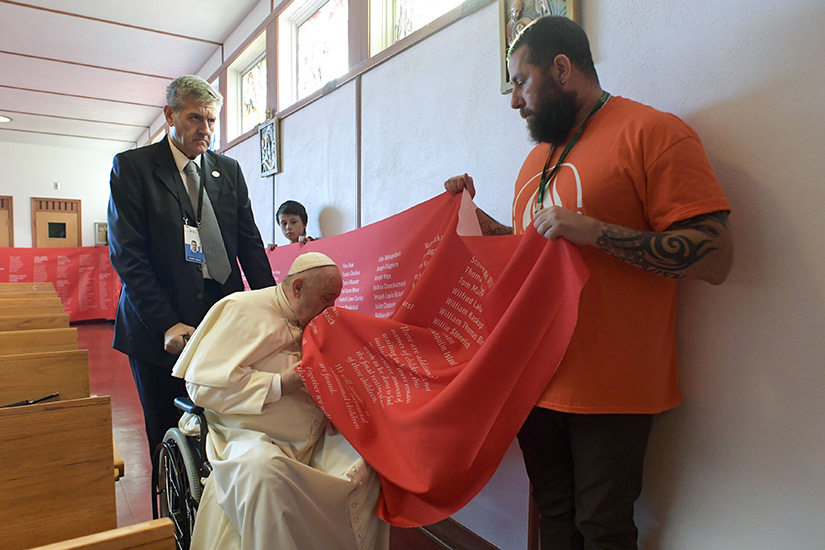
For Tammy Ward of the Samson First Nation, those words from Pope Francis brought tears as she listened on the Muskwa, or Bear Park, Powwow Grounds.
“It’s just very powerful,” Ward told The Catholic Register, Toronto-based newspaper, after Pope Francis finished delivering his historic apology on Indigenous land for the Catholic Church’s role in residential schools and other wrongs done on the Church’s behalf. “For me, it’s the healing.”
Ward leaned into her 21-year-old daughter, Aleea Foureyes, for comfort as Pope Francis confessed the sins Catholics committed against Indigenous Canadians in residential schools.
“In the face of this deplorable evil, the Church kneels before God and implores His forgiveness for the sins of her children,” Pope Francis said, invoking St. John Paul II’s 1998 bull, “Incarnationis Mysterium.” “I myself wish to reaffirm this, with shame and unambiguously. I humbly beg forgiveness for the evil committed by so many Christians against the Indigenous peoples.”
Pope Francis delivered his apology on the treaty land of the Ermineskin and Samson Cree Nations, the Louis Bull Tribe and the Montana First Nation, as part of his “penitential pilgrimage” to Canada. The site was near one of Canada’s largest residential schools.
For 49-year-old Ward, it brought memories of her relationship with her parents.
“I always thought my parents didn’t love me. I was always wondering why they were silent,” she said.
Years later she understood how a childhood spent institutionalized in residential schools had left her parents unprepared for family life.
It was a day full of emotion as Indigenous people responded to Pope Francis’ presence among them.
Ted Quewezance, an elder from the Keeseekoose First Nation in Saskatchewan, had overseen the ground-penetrating radar search for unmarked graves that uncovered 42 possible graves near the Fort Pelly residential school and another 12 at St. Philips residential school. He spoke to the crowd of about 5,000 about the long process of reconciliation.
“The pope’s apology is not asking for instant trust,” Quewezance said. “Today I am willing to extend my hand to the pope and to the bishops.”
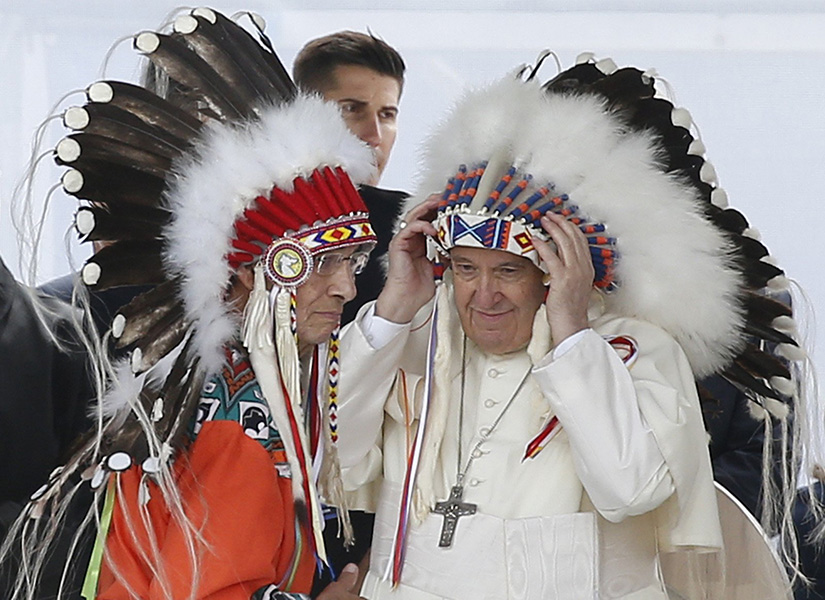
But Quewezance warned about the politicization and bureaucratization of reconciliation efforts by governments and Churches.
“Reconciliation in Canada is all about recommendations, reports. It’s not about action,” he said.
Jonathan Buffalo didn’t just come to hear Pope Francis. He came to dance. Indigenous dance, he said, is a path to healing.
“I dance with pride and honor. I dance for my people, my ancestors, my elders,” said the young administrative assistant at the Samson Cree Community Wellness Centre.
Buffalo said he hopes non-Indigenous Catholics hear what the pope has said and read the Truth and Reconciliation Commission report, to know the truth about residential schools.
“It has to be talked about for people to understand (intergenerational trauma),” said Buffalo, whose mother is a residential school survivor.
VATICAN CITY — Pope Francis said all the speeches he has prepared for his trip to Canada “begin and end” with asking forgiveness. Pope Francis kissed the hand of a … PAPAL TRIP TO CANADA JULY 25-29 | Pope’s Canada trip will begin and end with asking forgiveness
Subscribe to Read All St. Louis Review Stories
All readers receive 5 stories to read free per month. After that, readers will need to be logged in.
If you are currently receive the St. Louis Review at your home or office, please send your name and address (and subscriber id if you know it) to subscriptions@stlouisreview.com to get your login information.
If you are not currently a subscriber to the St. Louis Review, please contact subscriptions@stlouisreview.com for information on how to subscribe.

